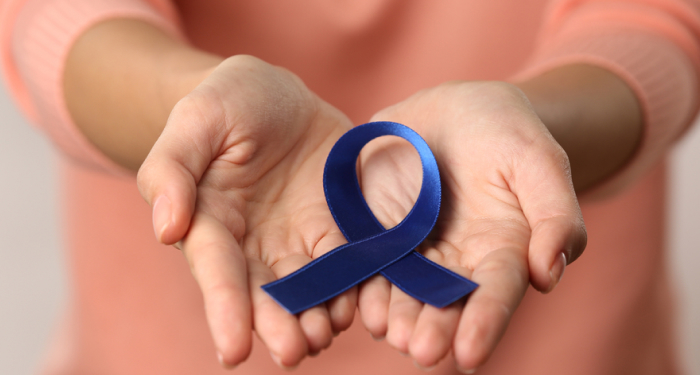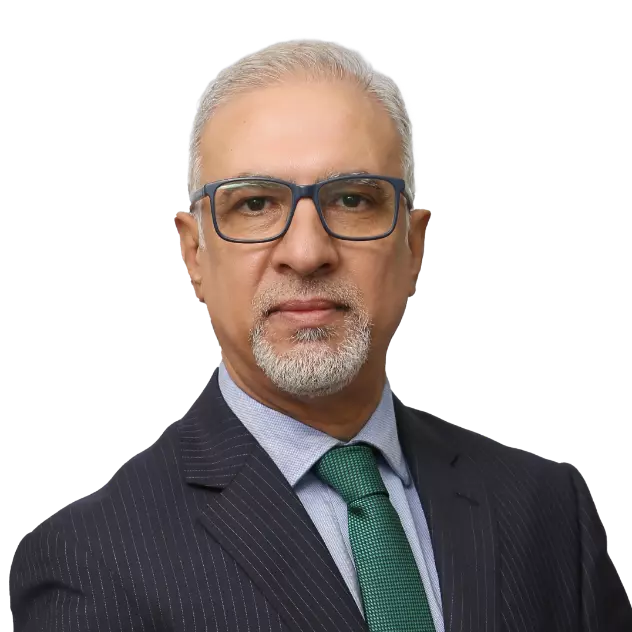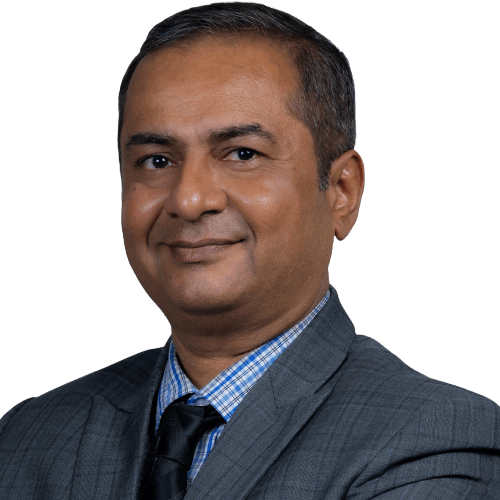Written By: Dr. Emad Fayyad
A gastroenterology specialist, Dr. Emad Fayyad completed his Bachelors & Masters from Romania, & has also qualified for the Jordan Board Certificate in Gastroenterology. He has worked at Rashid Hospital in Dubai & taught at the Dubai Medical College. He has also worked at the Luliu Hatieganu University of Medicine & Pharmacy in Romania.
Updated On:December 21, 2023
Read more.

What is Colon Cancer?
Although colon cancer can occur at any time during someone’s lifetime, it typically affects more mature adults. It is a type of cancer that begins in the large intestine, which comprises the colon & rectum. The colon is the final section of the digestive tract, part of the digestive system, also known as the gastrointestinal system. Colon cancer usually starts as small, benign or noncancerous polyps. These clumps of cells appear on the interior lining of the colon &, over the course of usually many years, some polyps can become colon cancers. The chance of a polyp evolving into cancer depends on the type of polyp.
Colon cancer is sometimes referred to as colorectal cancer - a term that combines colon cancer & rectal cancer. With many features in common, these cancers are often grouped together. When cells in the body start growing out of control is when cancer starts. Doctors recommend frequent screening to help avoid colon cancer by identifying & removing polyps before they become cancerous. Polyps can produce few symptoms if any. If cancer occurs, several treatments are available that can help control it. These include drug & radiation therapy & surgery.
Symptoms of Colon Cancer
This is where regular screening becomes important because polyps can be small & the symptoms few, if evident at all. The symptoms of colon cancer, when they do appear, will likely vary often to a dramatic extent. They can range from fatigue, stomach cramps or rectal bleeding to suspicious weight loss, changed stool appearance, or constipation.
Signs & Symptoms of Colon Cancer Include:
Colon cancer symptoms can also depend on the size of the cancer & its precise location. Time is always of the essence with any cancer, & the following are the generally recognised signs that you should look out for, & that should prompt you to get checked out by a doctor:
- The appearance of blood in your stool.
- Rectal bleeding.
- Unexplained weight loss.
- Frequent abdominal discomforts, such as gas, cramps, or pain.
- Persistent changes to your bowel habits - these can be diarrhea or constipation or a different consistency of stool.
- Weakness or fatigue.
- Feeling that your bowel doesn't empty completely.
When to see a doctor for Colon Cancer?
Make an appointment if & when you notice any persistent symptoms that cause you to worry. It is also advisable to discuss with a doctor when to commence screening for colon cancer. This will generally commence around the age of 50, based on current guidelines. If you have other risk factors that deem you vulnerable - such as a family history of colorectal cancer - then screening could begin when younger, or more frequently.
Screening has been shown to reduce the risk of dying of colon cancer, not least as it can give an early colon cancer diagnosis. Therefore, medics recommend certain screening tests for healthy people without symptoms to check for signs of colon cancer or noncancerous colon polyps.
Should symptoms indicate an issue, the doctor could recommend further investigation, such as one or more of the following:
- Blood tests don’t reveal colon cancer but can reveal carcinoembryonic antigen, a chemical sometimes produced by colon cancers.
- A colonoscopy sends a long, flexible & slender tube connected to a video camera to monitor the entire colon & rectum. Surgical tools can be passed through the tube to take biopsy tissue samples for analysis & remove polyps.
Following a colon cancer diagnosis, a doctor may recommend tests to determine the extent of cancer. These staging tests help determine appropriate treatments & may include imaging procedures such as abdominal, pelvic, & chest CT scans. Often the stage of the cancer may not be fully determined until after surgery.
Causes of Colon Cancer
There is no certainty about what causes most colon cancers. As with all forms of cancer, however, extensive research continues in laboratories around the world. What is known by scientists & medical experts is that colon cancer starts when healthy colon cells develop mutations in their DNA.
Ordinarily, a body’s healthy cells grow & divide to keep it functioning normally. But when cell DNA becomes cancerous, cells continue to divide even when new cells aren't required. This forms a tumour when the cells accumulate. In time, cancer cells can invade & destroy normal tissue nearby. Metastasis then occurs when cancerous cells travel to other parts of the body & form deposits.
Colon Cancer Risk Factors
Colon cancer risk factors are numerous. They include lifestyle aspects, such as a poorly curated diet or a lack of exercise. Also, the regular consumption of alcoholic beverages or tobacco products. Although the majority of colon cancer diagnoses are among the over 50s, colon cancer can strike at any age. Familial factors can also play a strong contributing role. This can range from immediate relatives who have been diagnosed with colon cancer to gene mutations that have passed through generations of a family, which can significantly increase the risk of colon cancer. Other conditions, including Crohn’s disease, & some specific radiotherapy treatment, are also noted as risk factors for colon cancer.
Colon cancer risk factors include:
- Maturity - colon cancer is more common in people aged over 50.
- Blood relatives with a history of colon cancer.
- If you've already endured colon cancer or noncancerous colon polyps.
- Inflammatory intestinal conditions, such as ulcerative colitis.
- An inactive lifestyle.
- High-fat, low-fibre diet perhaps rich in red & processed meats.
- Obesity.
- Smoking.
- Heavy alcohol intake.
- Diabetes.
- Previous radiation therapy for cancer, directed at the abdomen.
- A minority of colon cancers are associated with genetic conditions. The most common of these are familial adenomatous polyposis & Lynch syndrome.
Colon Cancer Complications
Identifying colon cancer early is commonly viewed as a crucial key to effective treatment. The colon & rectum wall comprises many layers, & if the cancer forms into a polyp, over time, it can grow into the wall. Colorectal cancer starts in the innermost layer, the mucosa, & can spread outward through some or all the other layers. Cancer cells in the wall can grow into blood vessels or lymph vessels. From there they can travel to nearby lymph nodes or to distant parts of the body, ultimately spreading the cancer & making it harder to treat.
Colon Cancer Treatment
Identifying cancer early, before it has spread, often opens the window to more treatment options & more treatment options add up to a better chance of fighting & beating cancer. Colon cancer treatment can include minimally invasive surgery, where the cancer is small.
Treatment of Colon Cancer includes:
- Polypectomy: This is a procedure that removes polyps during a colonoscopy.
- Laparoscopic Surgery: During this procedure, polyps are removed via small incisions in the abdominal wall through which instruments with attached cameras are inserted. If your doctor chooses an endoscopic mucosal resection, larger polyps can be removed during colonoscopy along with a small section of the colon's inner lining.
- Levels of Carcinoembryonic Antigen: This is a chemical that is sometimes produced by colon cancers - can be tracked via blood tests by a doctor to determine prognosis. This indicates whether the cancer is responding to treatment. If colon cancer develops, however, several treatment options are available to help control it. Those most likely to be effective depending on details such as the cancer stage & location, plus any other health concerns.
Procedures Involved in Treating Colon Cancer:
- Partial colectomy in which the colon section containing cancer, along with some normal tissue on either side, is removed. A surgeon is usually able to reconnect healthy portions of the colon or rectum.
- Where this isn’t possible, an ostomy may be performed. This involves creating an opening in the abdomen wall from part of the remaining bowel for bodily waste elimination into a bag.
- Nearby lymph nodes also tend to be removed for cancer testing during colon cancer surgery.
- Chemotherapy deploys drugs to destroy cancer cells. With colon cancer, it is usually given after surgery if the cancer is larger or has spread to the lymph nodes.
- Immunotherapy drug treatment that uses the body’s immune system to fight cancer.
- Radiation therapy utilises the likes of protons & X-rays to kill cancer cells & can be used to shrink a large cancer before operating.
- Targeted drug treatments focusing on specific abnormalities present within cancer cells, usually combined with chemotherapy.
Colon Cancer Prevention
Early detection is crucial to tackling colon cancer. Therefore, a screening programme should be discussed with the doctor. Most recommend screening from the age of 50 for people with an average risk of colon cancer. Those with a family history of colon cancer, & therefore at greater risk, should consider screening sooner. There are options for the type of testing you can undergo, which should be discussed with a doctor. Outside of a medical facility, a variety of often simple lifestyle adjustments can be made to increase colon cancer prevention. These usually involve omitting unhealthy & unnecessary habits such as tobacco use while boosting healthy practices, notably introducing more exercise into your daily routine alongside a better balance of beneficial food choices into meals.
Colon cancer prevention measures include:
- Limiting or quitting alcohol consumption.
- Quitting smoking if this is an existing habit.
- Adding a mix of vegetables, fruit & whole grains to your diet, bringing minerals, vitamins & antioxidants that can aid cancer prevention.
- Keeping body weight to a healthy level.
- Regular exercise, preferably 30 minutes daily.
Some preventative medications have been found to reduce the risk of precancerous polyps or colon cancer. People with increased risk should discuss this with a doctor. There is some evidence linking the regular use of aspirin to colon cancer prevention. It is unclear, however, what dosage & what duration would be needed to be effective. Taking aspirin daily carries its own risks, such as ulcers & gastrointestinal bleeding. Your comfort is at the heart of what we do. Our experts are always an appointment away to guide you through the right treatment plan.
Meet our doctors from the Gastroenterology department
|
||||||||
|
||||||||
|
||||||||
|
||||||||
|
||||||||
|
||||||||
|
||||||||
|
||||||||
|
||||||||
|
||||||||
|
||||||||
|
||||||||
|
||||||||
|
||||||||
|
||||||||
|
||||||||
|
||||||||
|
||||||||
|
||||||||
|
||||||||
|
||||||||
|
||||||||
Similar Posts
teleMEDCARE App
Download teleMEDCARE app from Google Play or App Store to connect immediately to Medcare doctors at a click of a button and without an appointment.

Home Services
We offer our patients a broad range of home health care services in the comfort of their own homes. Book an appointment for lab tests, vaccinations, nurses and physiotherapists.

Chronic Care
Know more about our Chronic Care Management Programme in partnership with Damana Saicohealth.

teleMEDCARE App mobile
Download teleMEDCARE app from Google Play or App Store to connect immediately to Medcare doctors at a click of a button and without an appointment.

Home Services
We offer our patients a broad range of home health care services in the comfort of their own homes. Book an appointment for lab tests, vaccinations, nurses and physiotherapists.

Spotii
We have partnered with Spotii to offer a more flexible way to pay - Pay over time for your purchase. No interest, no cost & no catch.





























